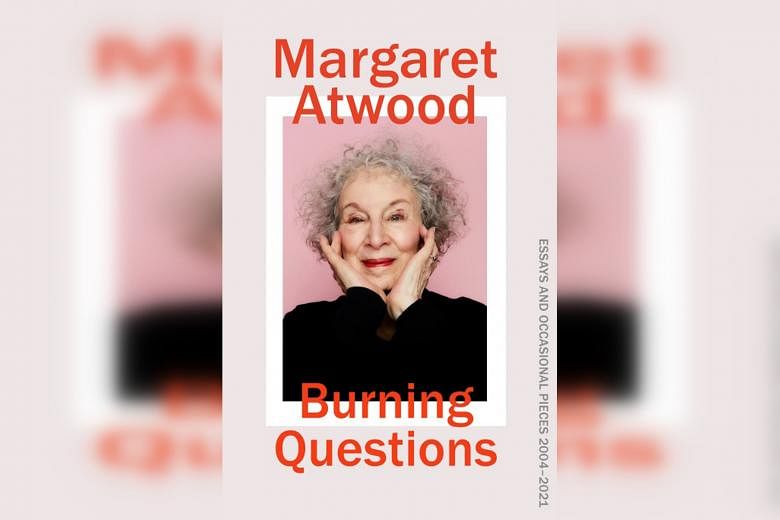Burning Questions
By Margaret Atwood
Non-fiction/Chatto & Windus/Paperback/496 pages/$44.75/Released on March 1, pre-order here
3 out of 5
What do zombies have to do with the poetry of T. S. Eliot? Such are the funny little connections that pepper Canadian author Margaret Atwood's third essay collection.
It gathers more than 50 "essays and occasional pieces" from 2004 to 2021 from the two-time Booker Prize-winning author. These include new work, like a meditation on life in the Covid-19 pandemic and a foreword for The Bedside Book Of Birds by her partner Graeme Gibson, who died in 2019.
Atwood chews over culture wars and the climate crisis, fashion and feminism, Shakespeare and science fiction. She reviews a lot of books, while getting in a jab at the first savage New York Times review of her most famous novel, The Handmaid's Tale (1985).
The collection is less selective than exhaustive. Despite the urgency evoked by its title, one gains few fresh revelations from these pieces.
Rather, reading them is more like attending a dinner party where a charming conversationalist holds court. Sometimes, she rambles and you find yourself wondering: What were we talking about again? But she is being so witty about it that you hardly mind.
Most enjoyable are the excursions into her own writerly past. She recalls her first book signing, which took place in the men's sock and underwear department of the Hudson's Bay Company store in Edmonton, Alberta.
She sold two copies; otherwise, the male shoppers fled from her in droves. "Proust never had to flog his books in a women's lingerie department," she reflects ruefully.
Atwood is wary of ideology and how it seeks to eliminate ambiguity and nuance. To this end, she reproduces Am I A Bad Feminist?, her controversial op-ed defending her decision to sign an open letter criticising the lack of due process for Steven Galloway, an author accused of sexual assault.
Eschatology draws her again and again. She writes often about the end of the world, though she does so lightly for the most part. The zombie apocalypse, for instance, she considers "an escape from a real future we quite rightly fear - due to the predictions of climate change and the societal collapse that haunt our times - into a fearsome future that is not at all real and is therefore consoling".
This is the real burning question she keeps coming back to - why is the world ending, and why is humankind doing so little to stop it? "We're inside the wondrous mechanism we ourselves have constructed, and we don't know how to get out," she writes.
Like most writers, Atwood does not actually have the answers, though she does her best to foreground those who do. The late environmentalist Rachel Carson - author of The Silent Spring (1962), dubbed by Atwood "Saint Rachel of All Birds" - gets multiple mentions.
But it is for storytelling that one looks to writers like Atwood. In an essay on the beloved 1908 children's book Anne Of Green Gables, she writes that "Anne is the triumph of hope over experience: it tells us not the truth about life but the truth about wish fulfillment."
That may be why we keep going back to the zombies, she reckons. "They are ourselves, but without the hope. I wish you hope."
If you like this, read: Writing With Intent (Basic Books, 2006, $38.97, buy here, borrow here), a collection of Atwood's essays from 1983 to 2005.


